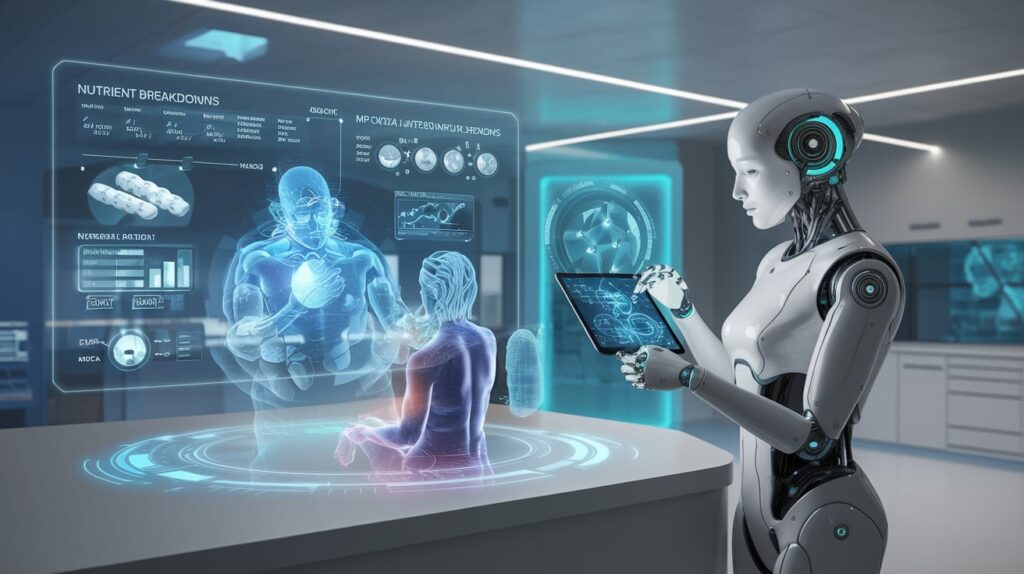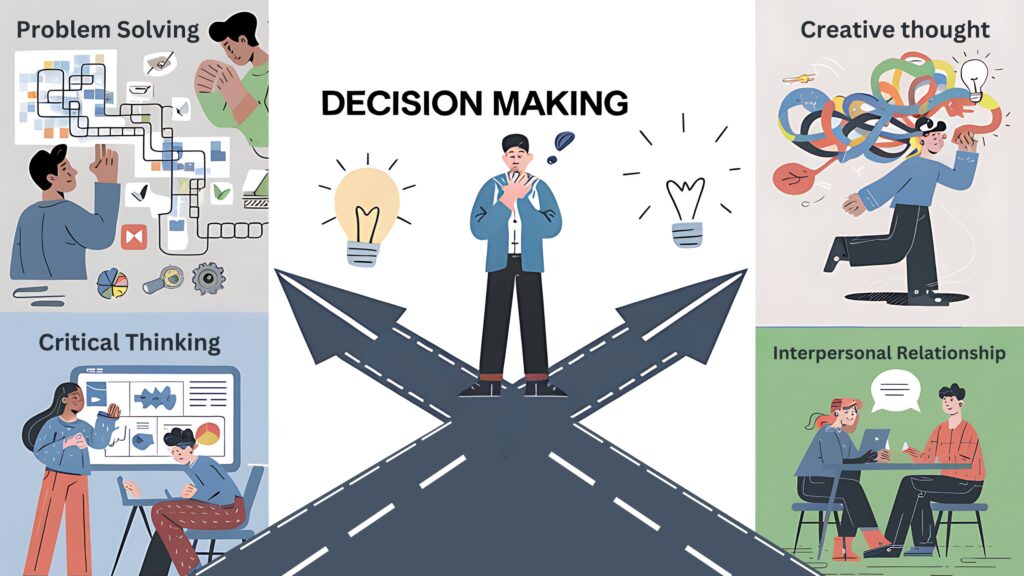Artificial intelligence (AI) has quickly progressed from a specialized technology to a disruptive force in many different areas, including the medical field. Clinical nutrition is one of the most promising fields where AI has the potential to have a big influence. AI offers cutting-edge ways to customize and improve nutritional care as the globe struggles with issues of obesity, malnutrition, and diseases linked to diet. The future of AI in clinical nutrition is examined in this article, which emphasizes how it could transform dietary assessments, individualized nutrition regimens, and the management of diet-related health issues in general.
Artificial Intelligence (AI) State In Clinical Nutrition
Clinical nutrition emphasizes the prevention and management of diseases by dietary adjustments, with a focus on the link between food intake and general health. Dietitians and nutritionists have historically depended on dietary evaluations.
A plethora of data is becoming available from genetic testing, wearable technology, and electronic health records (EHRs) that can be used to improve nutritional care. But handling and interpreting all of this data is a difficult undertaking, which is where Artificial Intelligence (AI) comes in. Artificial Intelligence (AI) technologies, such machine learning and natural language processing, can process enormous volumes of data rapidly and correctly, providing previously unreachable insights.
Artificial Intelligence (AI)-Powered Nutrition Evaluations
Dietary assessments enabled by AI are one of the biggest ways AI is predicted to change clinical nutrition. Due to under- or overreporting, traditional dietary evaluation techniques like meal diaries and recall surveys are prone to inaccuracies. These difficulties can be addressed by AI by automating.
Furthermore, AI can include information from wearable technology, such glucose monitors and activity trackers, to deliver real-time feedback on a patient’s nutritional state. More accurate and customized food recommendations are made possible by this data-driven method, which may be updated often in response to the patient’s evolving requirements.
Tailored Dietary Programs
Healthcare is seeing a significant shift toward personalization, and AI will be essential in developing individualized dietary regimens. To provide tailored nutritional recommendations, Artificial Intelligence (AI) can evaluate a wide range of data, including genetic information, gut microbiome makeup, lifestyle factors, and medical history.
AI, for instance, can utilize genetic information to ascertain an individual’s nutrient metabolism, enabling the development of personalized nutrition regimens.
Furthermore, AI can include information from wearable technology, such glucose monitors and activity trackers, to deliver real-time feedback on a patient’s nutritional state. More accurate and customized food recommendations are made possible by this data-driven method, which may be updated often in response to the patient’s evolving requirements.
Preventive Care and Predictive Analytics
AI has enormous potential in the area of predicting health outcomes based on dietary data. AI-powered predictive analytics can spot dietary habits in patients that could contribute to conditions like diabetes, heart disease, or malnutrition down the road. AI can assist healthcare practitioners in intervening prior to the development of disease by identifying these risks early on, providing preventive care that can enhance patient outcomes.
AI can also help with clinical research by identifying patterns and correlations between nutrition and health outcomes by analyzing massive datasets. This could significantly advance the science of clinical nutrition by revealing novel dietary approaches to controlling and preventing diseases.
Ethical Issues and Difficulties
Although AI has a bright future in clinical nutrition, it is important to think about the difficulties and ethical ramifications of its application. Security and privacy of data are two main issues. Access to sensitive health data is necessary for the application of AI in clinical nutrition, hence protecting the privacy and security of this data is crucial. To keep patients’ trust, healthcare practitioners and tech developers need to abide by stringent data privacy laws.
Furthermore, cooperation between patients, AI developers, and healthcare professionals is necessary for the incorporation of AI into clinical practice. In order to use AI tools effectively, healthcare providers need to be properly trained, and patients need to be informed about the advantages and drawbacks of AI-driven nutrition treatment.
The Prognosis for the Future
AI in clinical nutrition has a promising future that could completely change how we treat patients and prevent disease. We can anticipate increasingly precise nutritional evaluations, highly customized nutrition regimens, and enhanced clinical decision-making as AI technology develops. With any luck, these developments will make clinical nutrition a more accurate and data-driven field, improving patient outcomes in the process.
However, addressing ethical concerns is necessary to fully realize AI’s potential in clinical nutrition.To sum up, the incorporation of AI in clinical nutrition signifies a noteworthy advancement in customized healthcare. Looking ahead, the combination of AI and nutrition holds potential to open up new avenues for raising people’s quality of life and achieving better health outcomes globally.



Pingback: Technology: The Key Role in Building Smarter, More Informed Communities